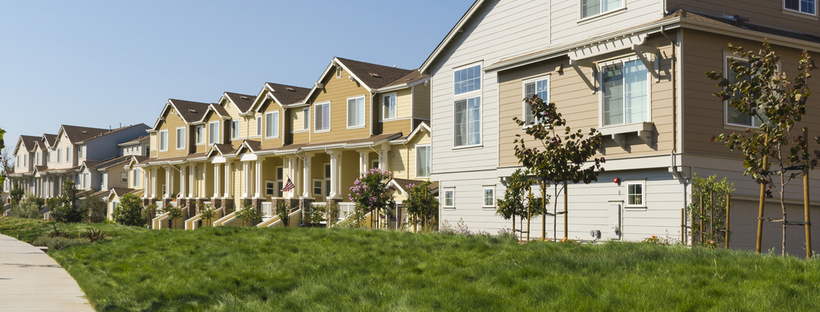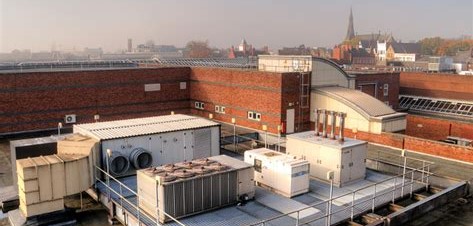When To Upgrade Or Replace Your HVAC System

Attention Multi Family Property Managers - Here's When To Replace And When To Upgrade Your HVAC Systems
6 MIN. READ
Multi family property managers are often kept awake at night, full to the brim with thoughts of big-ticket spend items. One of the biggest? HVAC systems.
These costs often come as a surprise, as you often realize the problem only after the system has failed. This is shortly followed by a scrambled search for a supplier, and it results in additional expenses. To help you sleep better at night knowing you have optimized costs where possible, follow these tips to know exactly when it is time to replace and when it is time to upgrade your HVAC systems.
What multi family property managers should know about HVAC
HVAC-related issues account for a big portion of yearly budgets and are a constant source of tenant complaints. Indeed, HVAC units need to be maintained properly in order to get the full lifespan from them. They need regular filter changes, purges and inspections, all of which take money and resources.
Additionally, there are many different types of HVAC systems. Depending on the application, managers need to know which type is best suited for the situation.
For example, some provide strictly cooling, while others can offer both cooling and heating. Some require extensive ductwork, and others do not. Let us review a few below:
- Heat pumps - Heat pumps are energy-efficient units that can provide both cooling and heating. They are a good option for larger units.
- Furnace - A furnace is a multi-part system that provides heat to the building. It consists of a blower, a heat exchanger and a flue. It uses a fuel source to produce heat and distribute it to the area.
- Split unit - These are ductless units that are good for smaller areas where there is no space to add ductwork.
Understanding the components and purposes of your building's HVAC system can help you decide if a replacement or an upgrade is the right move.
Replacing versus upgrading – how to decide
Heating ventilation and air conditioning are key aspects of any multi-family apartment building. So, if a residential unit does not have an optimal HVAC system installed, it will be immediately evident.
Here are some ways to decide if you need to upgrade or replace:
Time to replace
- Life span - Is the unit more than 10 years old? If so, it may be time to replace it. Older units are typically less efficient and parts may be harder to come by.
- Unit inefficiency - Are you noticing inconsistency with temperature? If you are getting multiple complaints and are spending money trying to repair the unit with no end in sight, it may be best to replace.
- Noisy units - A loud unit probably does not work well. It will be a nuisance to the tenant and a constant money-eater.
- Spike in utility bills - Piggybacking off inefficiency, you may find that some units are becoming energy hogs, which is not good for tenants or for multi family property managers.
Upgrade it
- New controls - Sometimes you can upgrade a system with new controls to run more efficiently. This is usually cheaper than buying a new unit.
- New filters - Adjusting and upgrading your filters can improve the performance of your HVAC unit at a relatively low cost.
- Size - Changing duct trunks can improve the efficiency of a system. This can be quicker and cheaper than a complete replacement.
- Dust - If you notice dust accumulation, this indicates a poor-performing unit. Making slight adjustments to airflow, filtration and cleaning can make a big difference in performance.
Take the time to investigate, troubleshoot and inspect your HVAC units. This will arm you with the information you need to make the best possible decision as a multi family property manager. Indeed, due diligence will help you decide whether it is time to upgrade or replace.
Optimize your spending on air conditioners, heat pumps and furnaces
HVAC units are expensive and bulky. They can take a toll on your budget, often require storage and hurt NOI.
Thus, saving money when sourcing air conditioners and furnaces is a great way to improve profits. Multi family property managers can employ several strategies to optimize their spending and increase efficiency:
- Negotiate contracts - Work with suppliers to obtain the best possible pricing on HVAC supplies - this should be a top priority.
- Prioritize terms - Establish no minimum purchases, bulk pricing allotments, no stocking fees and free shipping.
- Grow relationships - Ensure positive relationships with your vendors year-round, and drive spend to your priority vendors first and foremost. You may need to call in favors in the future, and stable relationships will often result in preferable solutions.
Essentially, remember that HVAC is a competitive industry, so stay ahead of the pack with good strategies.
Centralize your purchasing to increase efficiencies with Raiven
Since you spend a lot of money on HVAC-related items, centralizing your purchasing is a must - both in process and in people. The goal is to have one person or team manage all the purchasing within the company. Decide who that will be (perhaps your chief maintenance manager) to keep things smooth and efficient.
Process-wise, Raiven aggregates top suppliers on a unified digital platform. Your maintenance tech can find HVAC items on Marketplace and make the purchase with little hassle.
Plus, with many brand-specific HVAC supplies and units, you can source all of the top brands and supplies from one site and in one universal shopping cart. This helps prevent rogue spend, further eliminating unnecessary expenses.
Simplicity is key with Raiven. Your team has a lot to focus on, so they do not need to get bogged down in purchasing - let Raiven do the work.
Find out more
If you are struggling to decide whether to upgrade or replace your HVAC units, reach out to Raiven. We can help multi family property managers like you save money on supplies, optimize your purchasing program and help you make better decisions that will increase your profits.


